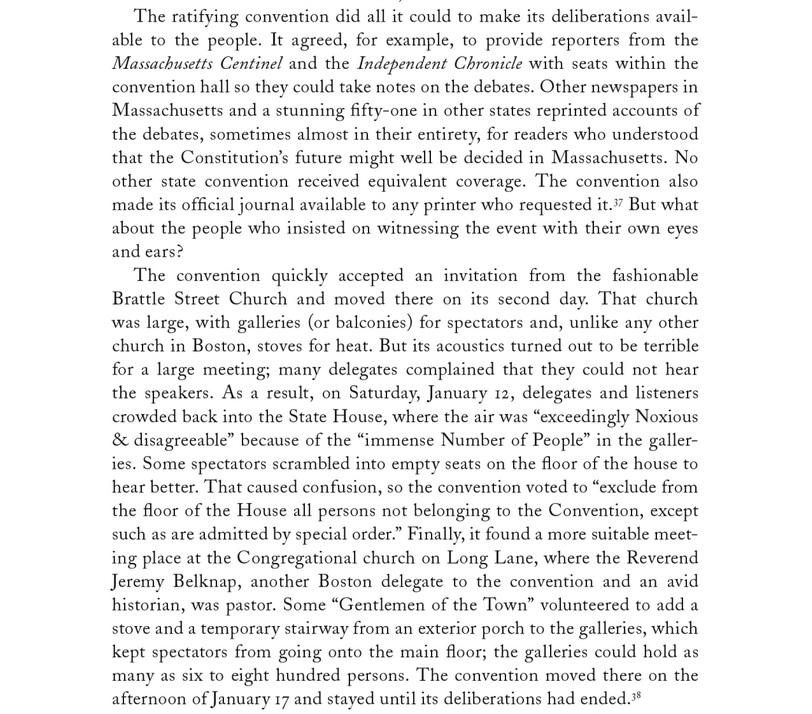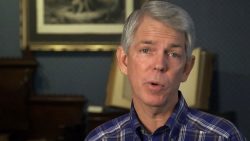Religious-right pseudo-historian David Barton has built a career out of exploiting right-wing audiences’ general ignorance of both the Bible and American history in order to promote his right-wing Christian nationalist political agenda.
Via his daily radio program and countless speaking engagements, Barton regularly misrepresents biblical and historical issues not only by repeatedly promoting debunked claims but also by constantly coming up with new misleading examples that supposedly demonstrate that the United States was founded to be a Christian nation.
On Tuesday, Barton spoke at the Bott Radio Network’s pastor luncheon in Memphis, Tennessee, where he unveiled a couple of new deceptive claims regarding the ratification of the U.S. Constitution.
“Once they got the Constitution finished, it’s not the document of the nation yet, you have to have it ratified,” Barton said. “You’ve got to send it to the 13 states and get it ratified. And so they sent it to the 13 states. If you’re going to receive a government document and have a debate over whether to ratify it, where are you going to send it? The state capitol? No, it’s not the way it happened. North Carolina, Connecticut, Massachusetts; the ratification conventions were held in churches. They sent it to churches to ratify the Constitution? Yeah.”
“Then each state had to select a certain number of delegates to attend the ratification conventions,” he continued. “Forty-four of the constitutional ratification delegates were ministers of the gospel. So again, preachers were highly, highly involved.”
Barton’s claim that the Constitution was “sent to churches” for ratification is outright false. What actually happened was that the Confederation Congress sent a resolution to all 13 state legislatures instructing them to establish conventions that would then vote whether to ratify the Constitution. While most such ratifying conventions were held in the states’ legislative chambers, some were held in churches purely for practical, not religious, reasons.
As historian Pauline Maier explained her in book, “Ratification: The People Debate the Constitution,” the ratifying convention in Massachusetts, for example, was held in a church simply to accommodate the large number of delegates and spectators:

As for Barton giving so much significance to his assertion that 44 of the delegates elected to the various state ratifying conventions “were ministers of the gospel,” he has left out some important context: There were more than 1,750 delegates who cast votes either for or against ratification, meaning that the people he identifies as “ministers of the gospel” represented less than 3 percent of the total number of delegates.
Hardly proof that “preachers were highly, highly involved.”






